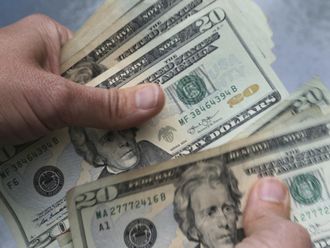
Dubai: If you were asked to estimate how much you spend on regular expenses like utilities and groceries, you would probably be able to give a fairly accurate estimate. Knowing how much can help you budget accurately every month as well. But what about other not-so-routine expenses?
If you were asked how much you budget for unexpected expenses or any other emergency costs, like for instance, planning a party, buying a gift, fixing your car or paying a hospital bill, then it's likely that you will underestimate the amount that you plan on or end up spending. But why is that?
Is it only because it’s hard to estimate such expenses given their unexpected nature and the fact that they don’t come up often? Not necessarily, say financial planners and coaches. It also boils down to small mistakes made when planning your budgets, they add.
How often are one-off costs underestimated?
“When we undertake a certain task, we've all made mistakes in planning that leads us to underestimate how long the task will take. Similarly, we also tend to underestimate costs, and we end up shocked only when paying,” explained Abu Dhabi-based financial planner Andrea Barbara.
A recent poll of 22,000 people in 30 countries, conducted by British wealth advisor Schroders, indicated that people often underestimate ‘exceptional’ or one-off expenses by about 40 per cent. Here’s why such costs turn higher than planned, how you can minimise the hit to your budget.
“What's going on here is the fact that we tend to view ‘exceptional’ costs like these as existing somewhere outside of our budget. We end up thinking of these costs as a one-time, one-of-a-kind thing, but often times you realise that many of such expenses recur,” Barbara added.

Mistakes made with overshooting expenses
“What I’ve often observed among those who struggle with spending is that these exceptional costs fall into an ‘it made sense at the time’ sort of thinking. While each of those purchases would make sense at the time, when added together, they really hurt your bottom line.”
Mirin Raul, a financial coach based in Dubai, too agreed that with one-off costs, the first mistake is viewing them as one-time expenses, rather than as part of a series of costs. “By viewing them this way, you will think every exceptional expense is worth splurging on,” she said.
“To turn that thinking off, simply keep a tally of your ‘exceptional’ expenses. Every time you buy something out of the ordinary, write it down. Then look at your previous exceptional purchases before making any new ones. It will help you to see the regularity of your exceptional purchases.”
Keeping tabs put the brakes on overspending
Raul added that you may also then find out that a purchase was viewed as unexpected, but you could have easily seen it coming. “Let’s say you had to buy a new computer recently because the old one crashed, and it was first deemed as a cost you couldn’t possible plan in advance for.
“However, when reviewing this exceptional cost that later wreaked havoc on your monthly budget, you may realise that not saving for a new computer when the old one started to slow down, turned out to be a mistake that eventually proved to be more costly than what you planned for,” she added.
“Similarly, if you were to factor in necessary costs for attending infrequent life events by looking at how much you have spent in the past, you can plan ahead with a special occasion budget to avoid busting your regular budget.”

“Let's say you budget for a low-cost vacation, cutting back on expenses like lodging, dining, activities, souvenirs and even travel insurance, but you end up having to pay a hospital bill overseas because you did not pay for insurance overseas. This is a ‘mental accounting error’,” explained Barbara.
“Although such instances are difficult to plan for, it's another reason to keep track of your expenses on a regular basis. If you are regularly tracking your expenditures, then you have the evidence of what things will really cost right in front of you each time you plan to make a purchase.”
Key takeaways
While fixed or routine expenses are easy to budget for, it’s challenging to budget for expenses that vary constantly because they are rarely exactly the same every month and they do not typically occur on the same day of each month.
Whether it's a medical emergency, a car breakdown, or a burst pipe, an unexpected cost can cause a strain on your finances. However, there are ways to plan and be better prepared for unexpected expenses, including knowing what options may help you budget during an emergency.
Even if you are averse to the idea of tracking your finances, you can still protect yourself from costly surprises in the future. For instance, it helps to write things down the first time you fail to account for them, so the next time, you remember to include those add-ons and contingencies in the budget.
This is another reason why financial planners reiterate having an emergency fund or a separate savings account for unexpected expenses going forward, as having even a small amount saved will help you when it comes to the burden of your next unexpected expense.











